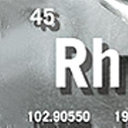Allergic profiles of mothers and fathers in the Japan Environment and Children's Study (JECS): a nationwide birth cohort study.
Palavras-chave
Resumo
BACKGROUND
The Japan Environment and Children's Study (JECS) is a nationwide, multicenter, prospective birth cohort investigation launched by the Ministry of Environment in Japan. The purpose of the JECS is to evaluate the influence of prenatal and postnatal exposures to environmental factors on the postnatal health of the children. In this study, we evaluated the allergic characteristics of parents within the JECS cohort.
METHODS
This study covered a wide geographical area and encompassed 15 regional centers. We obtained information regarding doctor diagnosed allergic diseases by using maternal and/or paternal self-administered questionnaires during the first trimester of pregnancy. Blood samples were also obtained from mothers and/or fathers to detect serum IgE concentrations.
RESULTS
The prevalences of asthma, allergic rhinitis (hay fever), atopic dermatitis, and food allergy were 10.9, 36.0, 15.7 and 4.8%, respectively, among 99,013 mothers; these prevalences among 49,991 fathers were 10.8, 30.3, 11.2 and 3.3%, respectively. Any positive antigen-specific IgE sensitization was found in 73.9% of mothers. The most abundant antigen sensitization in mothers was to Japanese cedar (55.6%), followed by Der p 1 (48%); only 1.0% of mothers were sensitized to egg white.
CONCLUSIONS
This is the first epidemiological report on allergic disorders and allergen sensitization of parents during pregnancy among the Japanese general population.



